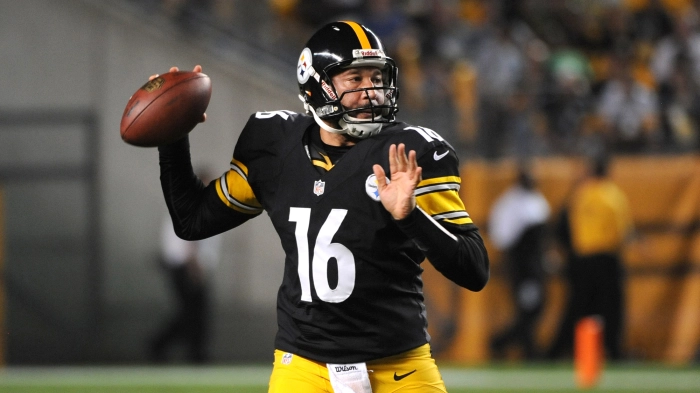Former NFL quarterback Charlie Batch is telling the public how medical marijuana helped him get his life back after years of heavy opioid use.
Batch detailed his history with cannabis and chronic pain at the Benzinga Cannabis Capital Conference, which was held in Miami earlier this year. The quarterback earned two Super Bowl rings while playing 15 seasons with the Detroit Lions and the Pittsburgh Steelers. But like most other professional athletes, Batch suffered a number of injuries over the course of his career, leaving him with serious chronic pain.
“Pain was an issue,” Batch told the crowd, Benzinga reports. “And of course, when you’re watching a football game, there’s a 100% chance that a player will be injured in that football game that you’re watching. And you’d be surprised at the pain medications that they give afterward. They continue to just pump out pain medication. It’s just Toradol shots after Toradol shots.”
Unlike fellow Steelers running back Le’Veon Bell and many other fellow players, Batch decided not to smoke weed during his professional career. At the time, the football league would suspend any player who tested positive for THC, and Batch didn’t want to risk missing a game. But as his career started to wind down, the quarterback found himself taking six to eight painkillers a day, and this ongoing flood of narcotics began to take a heavy toll.
After several years of regular pharmaceutical use, Batch was struggling to walk, get good sleep, and remain in a positive mood. The NFL star told the crowd that his wife eventually became concerned about his heavy opioid use. “She said, ‘I’m nervous and I don’t think you’re at this pace right now,” Benzinga reports. “’You’re not going to have a kidney or liver in the next ten years.'”
Batch’s wife traveled to California to seek out a healthier alternative. After a week of researching various options, she devised a healthy regimen of medical cannabis treatments specifically tailored to help him recover. Batch said that he saw an immediate improvement and quickly adopted a regular cannabis regimen that he still practices today.
“When I started that transition, it was like, wow. I started seeing my body react in different ways that it had never reacted before,” Batch said, according to Benzinga. “Now, here I am. All these years later, I walk 30 to 35 miles a week, something that I could not do prior to that happening.”
Fortunately, the NFL is no longer forcing players to make a hard decision between their medicine and their career. In 2020, the league agreed to stop suspending players who test positive for THC during routine drug tests. The NFL will still fine players who are caught using cannabis, though. Most other major American sports associations, like the NBA and MLB, have completely stopped punishing athletes for using medical cannabis.











